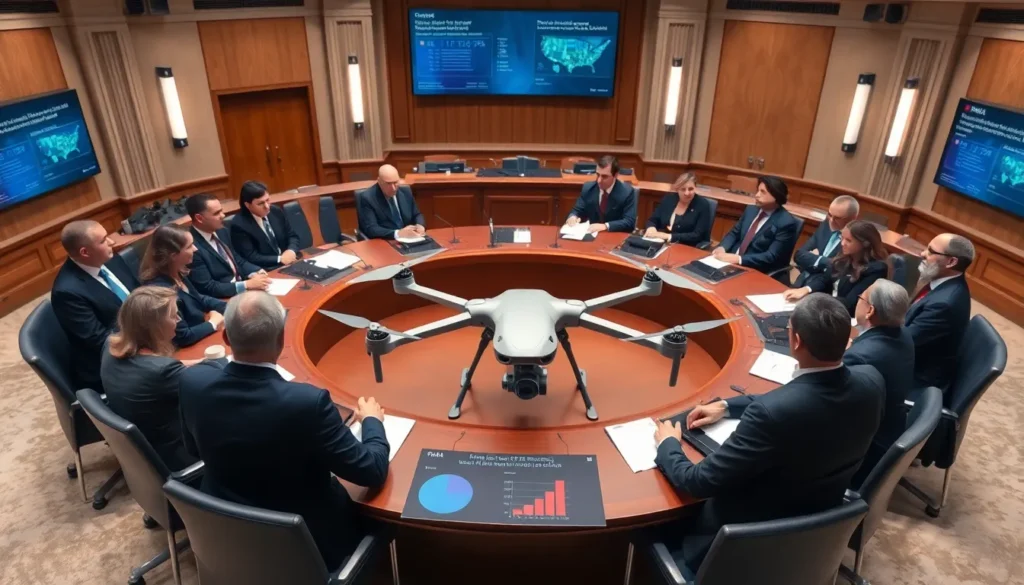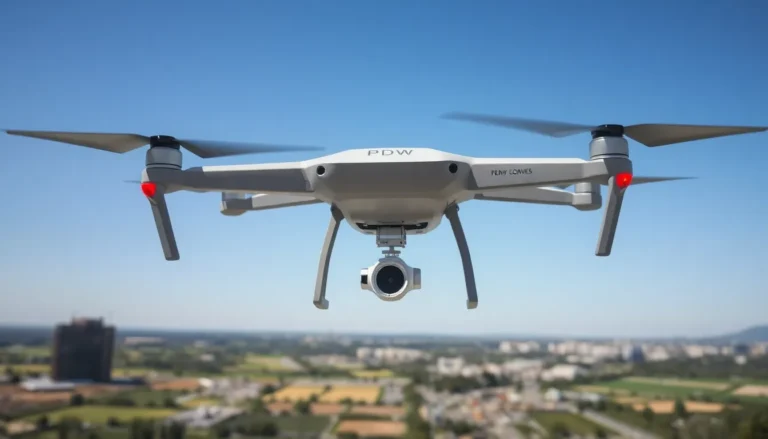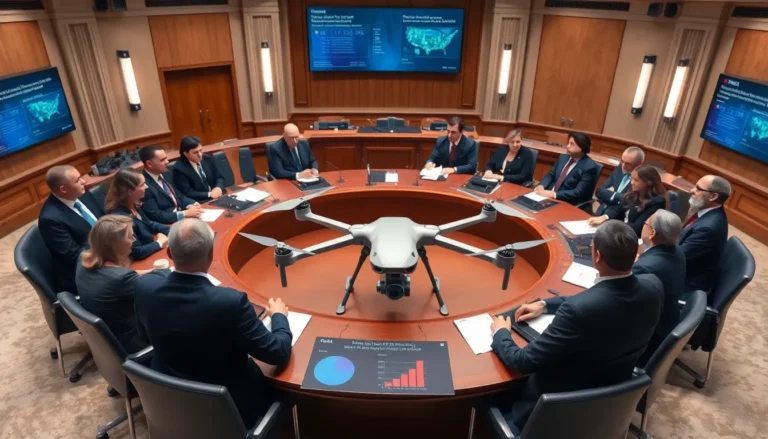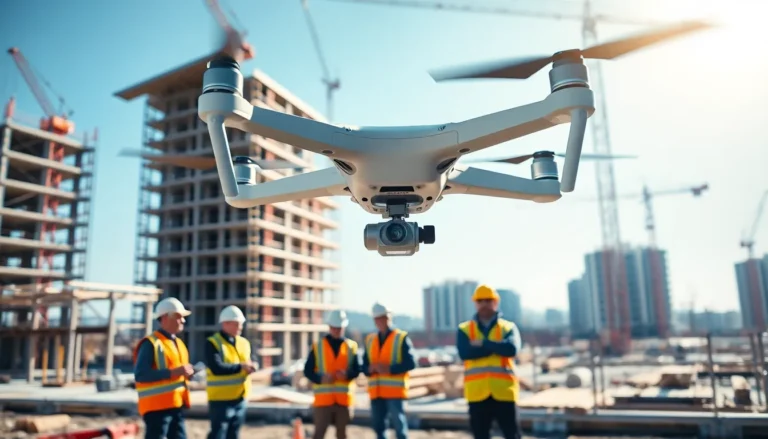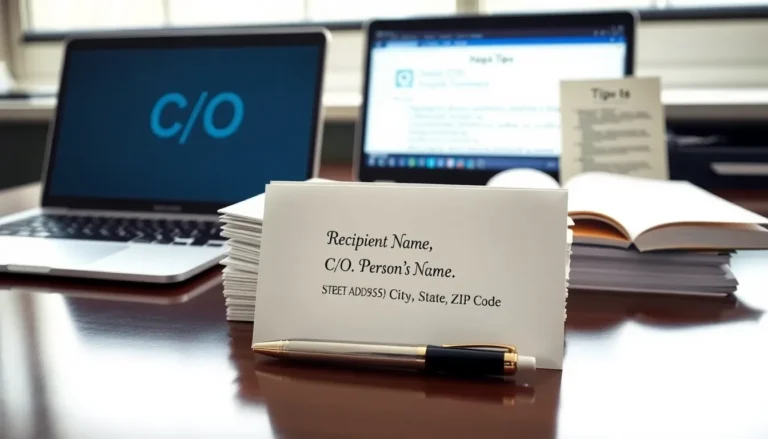Ever wondered if your congressional representatives are keeping an eye on you from above, courtesy of drones? While it might sound like a plot twist from a sci-fi thriller, the reality is that drones are becoming a larger part of congressional discussions and legislation than ever before. From surveillance to logistics, these buzzing machines are capturing interest, concern, and occasionally, a bit of humor among policymakers. Buckle up, because we’re about to take a jump into the high-flying world of drones and Congress.
Table of Contents
ToggleOverview of Drones in Congress
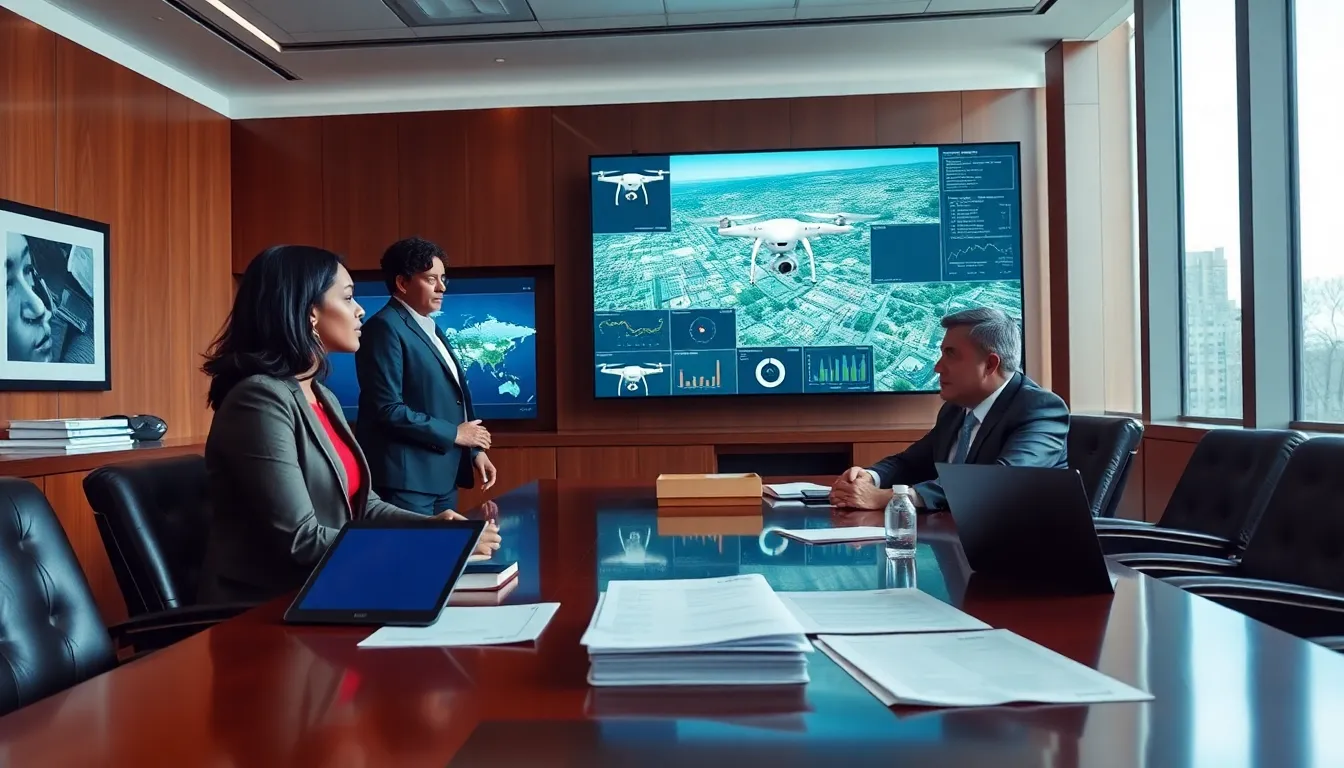
Drones, once relegated to military operations or thrilling aerial photography, are now entering the political arena. With capabilities ranging from reconnaissance to package delivery, the presence of drones in various sectors urges Congress to explore regulatory standards. Currently, lawmakers grapple with numerous aspects, not just the technological advancements but also the socio-political implications of these devices. They symbolize innovation yet also raise concerns about safety and privacy. In the coming years, congressional actions will shape how these tools can be employed in everyday life.
Historical Context of Drones Legislation
Understanding the roots of drone legislation is key to grasping its current trajectory. Early drones were predominantly utilized in military contexts, primarily for surveillance during conflicts. The rise of commercial drones spurred interest at all levels of government, leading to the Federal Aviation Administration (FAA) implementing regulations in the early 2010s. This burgeoning technology pushed Congress into action, initiating discussions that laid the groundwork for future regulatory frameworks. These early legislative efforts highlighted the competition between public interest in personal privacy and innovation in commercial uses.
Current Congressional Discussions on Drone Policies
Today, Congress is buzzing with debates around drone policies that could significantly impact society. Legislators are exploring many facets of drone usage, safety measures, insurance requirements, and the ethics of surveillance. In recent hearings, experts have weighed in on the balance between technological progress and citizens’ rights.
Impact of Drones on Surveillance and Privacy
The expanded use of drones raises critical questions concerning privacy. Lawmakers are increasingly aware that while drones can enhance security and efficiency, they also pose potential risks to individual privacy rights. Discussions revolve around establishing norms that protect citizens from unwarranted scrutiny. Data collection through drones could lead to abuses unless properly regulated. Hence, as talks continue, Congress finds itself at a crossroads, attempting to create a framework that supports innovation without sacrificing the public’s privacy.
Regulatory Framework for Drone Usage
Creating effective regulations for drone usage involves a careful balancing act. Congress recognizes the necessity of integrating new technologies into existing frameworks while ensuring comprehensive safety protocols are in place for all sectors. The regulatory framework must help commercial applications and address public concerns over privacy and safety.
Balancing Innovation and Security
Innovations in drone technology are rapid, making it crucial for Congress to act efficiently and responsively. The challenge lies in drafting legislation that adapts to technological advancements without stifling creativity. Proposals abound, from mandating no-fly zones over sensitive areas to requiring licenses for commercial operations. Lawmakers emphasize that stimulating innovation must coincide with robust security measures to ensure drones serve the public good rather than infringe upon individual liberties.
Future Trends in Drone Legislation
As drone usage continues to evolve, the legislative landscape is likely to shift dramatically. Anticipating technological innovations will be paramount for Congress. With artificial intelligence and machine learning finding their way into the drone industry, lawmakers must address relevant ethical concerns and establish appropriate guidelines. Future legislation may include connectivity with smart city initiatives, emphasizing integration with urban infrastructure. Besides, the emergence of public sentiment surrounding drones will shape forthcoming policies, with citizens advocating for clear privacy protections and accountability measures into the drone industry.

